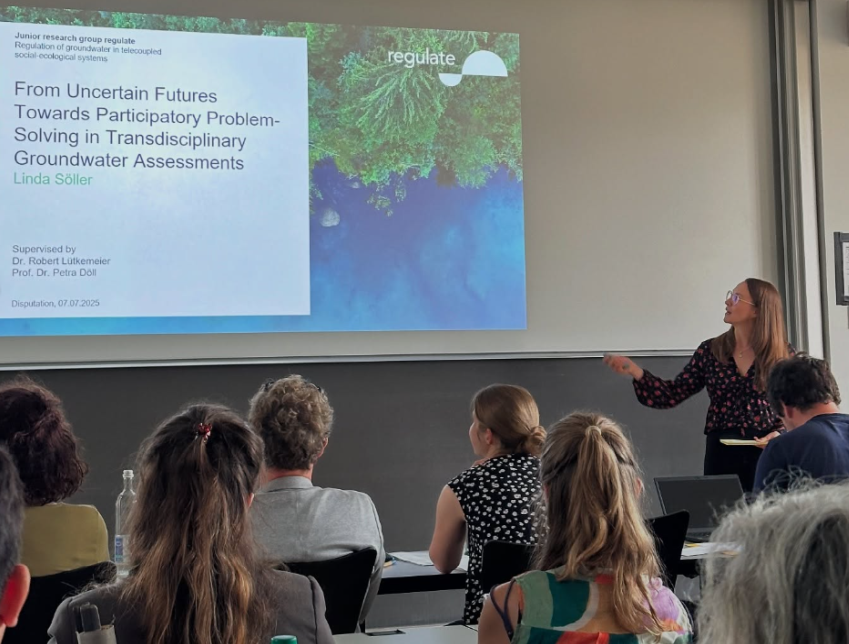Regulate celebrates the successful disputation of Dr. Linda Söller

Linda Söller successfully defended her dissertation on July 7 – we congratulate her wholeheartedly!
As part of the BMBF-funded interdisciplinary junior research group “regulate,” Linda (supervised by Dr. Robert Lütkemeier and Prof. Petra Döll) conducted research at the Institute of Physical Geography in collaboration with the Institute for Social-Ecological Research (ISOE) on how different modeling approaches and knowledge co-production between science and practice can contribute to sustainable groundwater management in times of climate change and changing water use.
Her work is divided into three interrelated research perspectives:
- Disciplinary – Using climate and hydrological models, she analyzed how groundwater stress in Europe could develop under different climate and usage scenarios.
- Interdisciplinary – Together with her colleagues from the natural and social sciences, she developed approaches to the co-production of knowledge in order to overcome complex socio-ecological challenges.
- Transdisciplinary – In two case studies (Mansfeld-Südharz district in Saxony-Anhalt & Krk Island on the Croatian Adriatic coast), she worked with stakeholders to develop future-proof strategies for sustainable groundwater management. As a visiting researcher in Siskiyou County, California, she also observed the implementation of the Sustainable Groundwater Management Act. There, she evaluated the usefulness of groundwater models for developing sustainable management strategies from the perspective of stakeholders.
Key findings of her dissertation: Climate protection and controlled withdrawals are key levers for preventing groundwater stress in the future, especially in southern and southeastern Europe. Groundwater stress is highly likely to occur/increase in these regions in the future. In order to develop effective management strategies under conditions of uncertainty, close cooperation between science and practice is needed. For such cooperation to have a long-term impact, transdisciplinary research must be permanently secured institutionally and financially.
